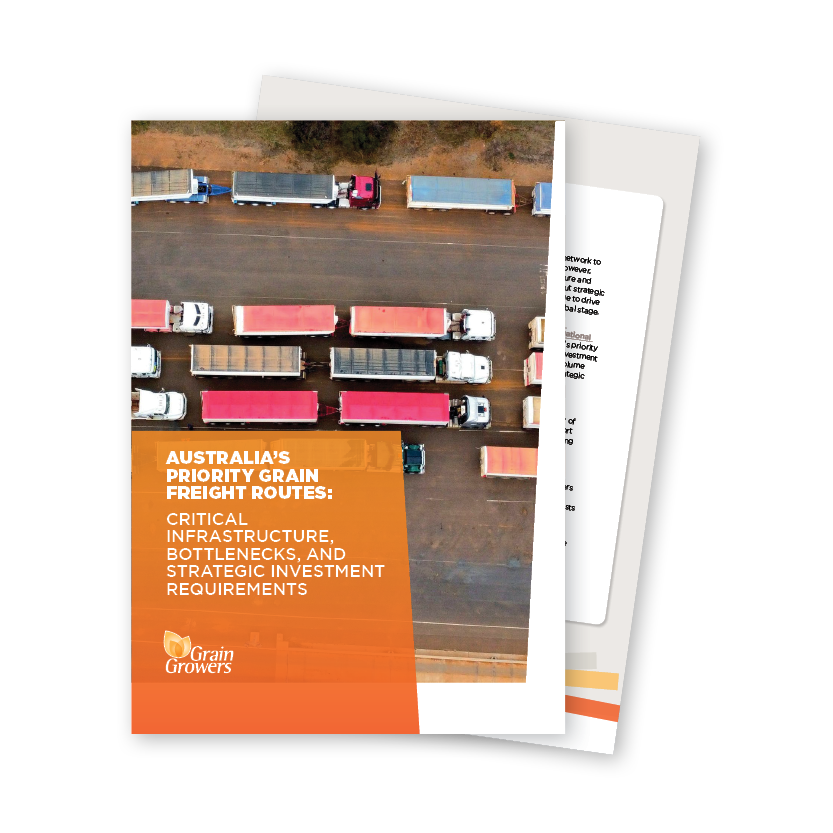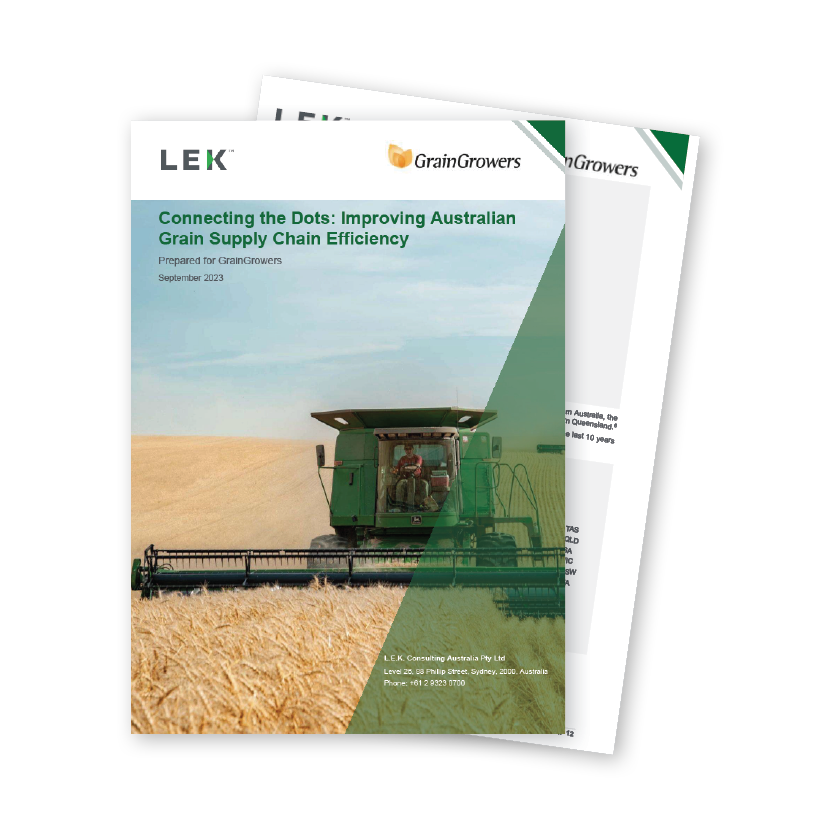Grain Freight and Supply Chains

Freight costs account for 30% of the price of grain at port. Australia's global competitiveness is limited by the cost of transporting grain and efficient supply chains are critical for future industry success. GrainGrowers will drive an agenda to improve access to and efficiency of the grain supply chain.
Policy Positions
Fuel Security Policy
Australia’s grain industry relies on secure, reliable, and affordable access to liquid fuels to support every stage of production, from sowing and harvest through to transport and export.
Low Carbon Liquid Fuel Policy
Low carbon liquid fuels have been identified as a potentially important tool in the decarbonisation of the transport and agriculture sectors. There is increasing interest in domestic low carbon liquid fuels production and the opportunities for Australian materials (referred to as feedstocks) that can be made into fuel including grains and oilseeds.
National Performance Based Standards Policy
The Performance Based Standards (PBS) scheme was designed to allow innovative, high productivity freight vehicles to operate safely, efficiently, and with minimal impact on infrastructure and the environment.
Work Underway
- Investigating how Australia’s current road funding model disadvantages rural and regional communities while highlighting more equitable infrastructure investment.
- Assessing inefficiencies, regulatory gaps, and poor infrastructure planning at Australia’s major container ports and articulating solutions to improve supply chain performance.
Australia’s Priority Grain Freight Routes: Critical Infrastructure, Bottlenecks, and Strategic Investment Requirements
GrainGrowers' report highlights the freight routes most important to moving millions of tonnes of grain each year and identifies where targeted upgrades are needed to reduce costs, improve safety, and keep Australian growers globally competitive.

Connecting the Dots: Improving Australian Grain Supply Chain Efficiency
GrainGrowers has commissioned a report that highlights the key areas that are impacting freight efficiency, reducing grower profitability, and affecting international competitiveness.
